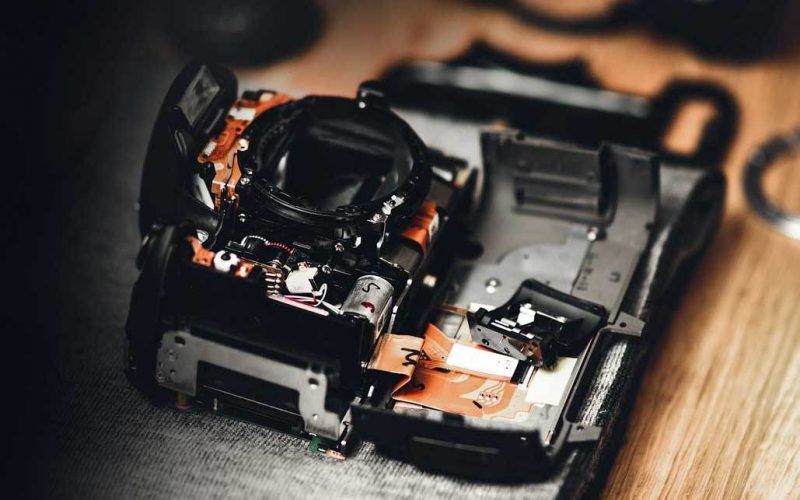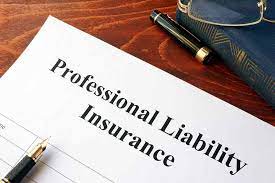In the photography industry, the stakes can be high. The accompanying costs are also rising. Insurance for your camera is essential. However, camera insurance can provide financial protection against the high cost of repairs or replacements for high-end cameras and their accessories. Your photographic gear and accessories may be covered by your homeowners or renters insurance if they are lost, stolen, or destroyed by a covered peril such as fire or a natural disaster, but the amount of any payout you receive may be subject to your policy’s deductible and sub-limits. An electronic device insurer’s camera insurance policy may provide more protection against accidental drops and water damage, and the deductible may be more reasonable. Best camera rental services, camera travel insurance, and State Farm camera insurance are all covered in this comprehensive guide.
What is Camera Insurance?
Camera insurance can help to safeguard your camera (including DSLR and SLR cameras), action camera, or camcorder from accidental damage, electrical or mechanical breakdown, theft, and loss. It can also cover any camera accessories or equipment you own.
Furthermore, a camera insurance policy, which is a subset of electronic device insurance, can pay for damage to or loss of cameras and other imaging gear due to a wide range of covered dangers. It’s not just more expensive cameras that can be covered by insurance; most policies will cover everything from a simple point-and-shoot to a mirrorless camera or professional-grade DSLR. In addition, camera insurance may also cover the following items:
- Shutter mechanisms
- The main body of the camera
- Lenses
- External flashes
- Camera batteries
- LCD screen
What Does Camera Insurance Cover?
All of your camera’s most important components, such as the LCD monitor, lenses, shutter mechanism, and external flashes, are covered by your insurance policy, not just the body. Some cooperative has a group policy that protects against the following disasters for all camera models, whether brand new or previously owned:
- Loss. This can go toward the purchase of a new camera if you were to lose yours. If you lose it somewhere other than in your own house, this rule applies. And your insurance company will anticipate that you have already made measures to mitigate risk.
- Travel cover. Taking a camera overseas won’t void your policy. Insurance policies typically limit the number of trips you may take each year or the number of days you can be out of the country.
- Mechanical Breakdown. If your camera stops functioning properly, this may assist defray the cost of getting it fixed. For instance, if the camera’s zoom feature freezes up or the capture button stops responding.
- Instant cover. Here is where your camera is immediately protected by your insurance policy. In the first few days after your policy goes into effect, you may not be able to file a claim since your device is not covered.
- Theft. If your camera is stolen, you won’t have to worry about paying to get it fixed or replaced. Your camera may not be covered if it was stolen while unattended or from an unsecured location.
- Accidental damage. Let’s use the example of you dropping your camera in a puddle and causing liquid damage to it.
- Accessories. To a certain extent, camera insurance can also cover additional equipment. Accidental damage to accessories is covered by the most basic insurance policy. In contrast, more extensive policies may cover the loss or theft of accessories.
What to Do if Your Camera Gets Stolen?
Camera equipment was stolen. Whether you’re an expert or just starting out as a freelancer, this is one of the worst things that can happen to your career. Cameras are essential to your job, and losing them can have serious, not to mention financially devastating, repercussions.
Even if you take every precaution to protect your equipment, there may be situations when it is stolen anyhow. Having a plan of action ready for those times is invaluable. Let’s examine what to do if your gear gets stolen.
#1. Complain to the Authorities
Reporting the theft of your equipment to the police should be your first step after discovering its disappearance. Taking prompt action is crucial, as it may determine whether or not you are successful in retrieving your lost property.
#2. Make Use of Image-Tracking Websites
You may recall some useful web tracking services. The moment has come to put them to use. Report the theft of your belongings online. As soon as the tracking system obtains a lead, you will be notified.
#3. Look at Pawn Shops in Your Area
It’s quite improbable, but it’s possible that your gear was sold to a neighborhood pawn shop. Each item purchased by a pawn shop is documented with its manufacturer, model, serial number, and description. This report is transmitted to local authorities so that they may mark the item as stolen if it has been reported stolen (yet another good reason to contact the police without delay). Pawn shop rules vary from state to state, but in some cases, you may be able to get your stuff back without having to pay the pawn shop back.
#4. Go Online and Look at Places Like eBay or Craigslist
If the thief intends to make money off of your stolen goods, they would likely put them for sale on an online auction site like eBay, Craigslist, or even Facebook’s own Marketplace. It’s crucial to keep a check on these sites and to act swiftly if you see any of your equipment posted there. If you discover your stolen goods advertised on such a site, it is best to avoid direct confrontation with the perpetrator. Instead, report the theft to the police so they can help you get your stuff back right away.
#5. Filing an Insurance Claim Should Be Your Last Resort
It’s possible to get your stolen camera gear back, but you should also prepare yourself for the possibility that you’ll never see it again. If it seems unlikely that you will be able to get your stolen equipment back, you may want to look into getting a replacement. If you took the precaution of insuring your photographic gear, you can submit a claim to assist defray the expense of replacing it.
What Camera Insurance Does a Photographer Need?
These are some insurance choices professional photographers can choose for their equipment.
#1. Business Insurance for Properties
This policy protects your camera gear when it is located at a fixed location, such as a studio or office. Commercial property insurance will come to the rescue if your camera is vandalized, stolen, or damaged on the premises.
#2. Insurance for Ships and Other Watercraft in Inland Waters
As a synonym for “inland transportation insurance,” “inland marine insurance” is used interchangeably. While commercial property insurance limits you to a single location, inland marine insurance can save the day when you need to bring your camera along on business travel.
#3. Used Camera Insurance Plans
Even if you don’t have the original receipt for a used camera, you can still insure it. The insurance may want proof of ownership or the camera’s worth in order to process your claim.
There are two things you can agree on, whether your camera is brand new or a few years old:
- If your camera is ever stolen or damaged beyond repair, this will cover the cost of a new one.
- If your camera is lost or damaged, you can get its current market worth in cash.
In addition, ensuring your camera for at least its replacement value is a wise idea.
#4. Camera Rental Insurance
When utilizing a rental lens or camera, you have a couple of different alternatives to think about.
To begin, there is probably some form of equipment protection offered by the rental provider. You should inquire specifically about what happens if you damage or lose the rental camera and whether or not you are covered by their insurance policy.
The alternative is to purchase a separate, temporary insurance policy for the rental property. Again, the cost might vary greatly from insurer to insurer, as well as by criteria like the area or country in which the camera will be used.
#5. Drone Camera Insurance
Because technically speaking we are talking about flying unmanned aircraft for your business goals, insurance for camera drones and aerial photography falls under a specific category and normally requires photographers to pay a premium price.
This isn’t conventional camera insurance, but it’s important to have if you engage in this potentially dangerous sort of photography. Also, read TOP 10 BUSINESS SECURITY CAMERA SYSTEMS: Reviews (Updated).
Best Camera Insurance
For the sake of their expensive cameras and other gear, photographers should invest in photography insurance. However, they also necessitate auto insurance and professional liability insurance to safeguard against negligence or bad advice, as well as liability coverage in the event of an accident or harm.
In addition, we examined the top photography insurance providers by looking at their coverage options, customer service, and cost (including how easy it is to get a free online quote and file a claim). Here are the top insurance providers in the industry for photographers as you prepare to safeguard your business.
#1. Full Frame Insurance
Full Frame is a leading provider of business insurance for photographers and videographers in the United States, offering a range of flexible policies to meet their specific needs.
However, Full Frame, which operates in 44 states, has a simple, online quote procedure that doesn’t include any brokers for photographers and videographers.
Full Frame is aware of the high-value photographers’ place on their gear. That’s why they have insurance policies for things like cameras and other gear, so you can get a new one if it breaks or get it fixed if it gets stolen.
Full Frame also provides various other types of insurance, including general liability, coverage for damage to rented buildings, professional liability, and more. In addition, Full Frame provides three distinct insurance packages—Annual Plus, Annual, and Event—to accommodate the varying needs of the photographic industry.
Full Frame will ensure your company receives the coverage it needs by paying close attention to the smallest of details and devoting a great deal of dedication to our photographers.
#2. Aaduki
Aaduki has worked as an insurance broker for the creative industries for over 20 years, with a focus on photographers and filmmakers. Therefore, they provide authoritative guidance on the topics you should address and why.
This is especially helpful if you are just starting out in business and have no idea what your legal obligations might be.
Insurance premiums for both amateurs and pros begin at $60. If you are a member of SWPP or a trade association wishing to provide more value to your members, you may qualify for special pricing.
Your portfolio, props, sets, stock materials, money, and other assets can all be protected by photography insurance. However, cameras are not covered by our mobile phone or drone policies.
Optional and adaptable, international insurance protection is available. You can reduce your rate by hiring your photographic equipment for a single shoot rather than insuring it all.
In addition to protecting your net income, this plan includes risk management services and access to a lawyer through Stallard Kane. Employers’ liability and product liability insurance coverage options are available if you purchase an umbrella policy that also includes public liability insurance.
Professional indemnity insurance can protect you from lawsuits brought by clients who allege that you provided subpar services as a photographer.
There are no third-party call centers between you and the company’s photographers, the company’s customer service assures you. When dealing with a problem or seeking guidance from an expert, this person-to-person touch is invaluable.
#3. Thimble
Thimble stands out among photography insurance providers since you may buy coverage for a single shoot or on a recurring basis. You can choose the duration of coverage for each assignment separately and pay for camera insurance just when you need it.
Even though Thimble only started up in 2016, its insurance products are backed by companies that have been around for decades. Both the Markel Insurance Company and the National Specialty Insurance Company have an A rating for financial stability from A.M. Best, and both will be responsible for underwriting your policy.
Global Aerospace, Inc. provides insurance for UAVs. We chose Thimble because its camera insurance options are so flexible, including the ability to pay monthly.
Thimble stands apart from the competition since it only sells insurance on an as-needed basis. Photography insurance is available both on a monthly basis and on a per-project basis.
There are no hidden costs or deductibles for including additional insureds on any of their policies. Certificates of Insurance are provided without restriction, and so are waivers of subrogation. Thimble offers flexible policies that can cover you in the event of an accident, whether it be physical or financial. You can acquire a quote online for free, and policies are available with limits of up to $2,000,000.
#4. biBERK
We went with biBERK because of how flexible their policies are in accommodating individual preferences. Even though biBERK isn’t widely recognized, it is a subsidiary of Berkshire Hathaway.
biBERK benefits from Warren Buffett’s Berkshire Hathaway Insurance Group’s backing. Founded in 1839 by Oliver Chace, a successful businessman in the textile industry, Berkshire Hathaway holds an A++ rating from AM Best for its financial stability.
Because you can tailor a policy to include only the features you require, this provider earned our top recommendation for insurance flexibility.
By removing the middleman, biBERK claims to offer insurance at rates up to 20% lower than the market average. In addition, they let you pick and choose which safeguards to include in your coverage.
Businesses in the photography industry can choose from a wide variety of insurance policies, including general liability, business owner’s policy (liability and property), commercial auto, umbrella, cyber, and workers’ compensation. Take note that biBERK provides no-cost price estimates over the phone or on their website. Claims can be filed or updated digitally without any hassle thanks to their user-friendly online method.
#5. Hill & Usher
Hill & Usher provides photographers with coverage tailored to their needs, as well as coverage for people working in video production, graphic design, and web design. Your camera gear, liabilities, and more are all protected by their plans.
Furthermore, Hill & Usher is a comprehensive insurance company that provides photographers with a policy called Package Choice. In different regions, insurance companies like The Hartford, CNA, Travelers, Zurich, Firemen’s Fund, and others may underwrite Hill & Usher’s products. While you can start putting together a free quotation online, you’ll need to talk to an agent to find out how much a policy with the coverage and limits you desire would actually cost.
We ranked Hill & Usher’s Package Choice highest because it provides specialized coverage for photographers who also operate their own studio, including coverage for the building itself. In addition to the aforementioned options, photographers can also obtain business income insurance, general liability insurance, insurance for their cameras and professional equipment, and insurance for their laptops and portable electronics.
Also, certificates of insurance for venues and landlords are also available, as is worldwide camera insurance. Identity theft protection is available as an add-on to your policy and can come in handy if a hacker gains access to critical information like your Social Security number.
#6. The Hartford
We ranked The Hartford highly because of the extensive coverage they provide for photography studio employees in the event of work-related injuries. This is true whether or not you have employees.
Furthermore, The Hartford is an insurance provider that has been around since 1810 and now provides coverage for your house, car, and business. AM Best rates The Hartford A+ for financial soundness, so it should be able to pay valid claims.
In addition, photography studios with many staff members would appreciate The Hartford’s extensive range of employee coverage options.
The Hartford’s professional liability and workers’ compensation coverage choices for employees made them a standout in our evaluation, but their photography insurance is a solid choice whether you work alone or with a team. If you wish to modify your coverage, call or visit an agent. You can get a free quotation online.
Also, The Hartford provides photography businesses with a variety of insurance policies beyond those specifically tied to workers’ compensation, including business owner’s policies (BOPs), general liability insurance, property insurance, income insurance, and computer service interruption insurance. In addition, if you conduct business from home, such as photography, you can purchase additional coverage.
Rental Camera Insurance
So you don’t take pictures or make videos often enough to justify purchasing a camera? In that instance, you may team up with a rental company and obtain the necessary tools on an as-needed basis. Don’t forget to factor in the price of rental insurance for your camera equipment when calculating the total cost of your forthcoming project, whether it’s for work or pleasure.
With camera insurance, you won’t have to worry about replacing or repairing any of the gear you hire, whether it’s for photography, production, editing, or anything else.
What Is Rental Insurance for a Camera?
Camera equipment rental insurance is made to cover cameras only when they are rented out, not when they are owned.
Furthermore, equipment problems are more common for those who use rented gear in less-than-ideal conditions, such as when traveling or when the weather is bad, and for renters, problems such as damage or loss can result in hefty fines and fees from the rental house. Those costs can be mitigated with rental insurance for cameras.
Which Risks Are Covered by Rental Equipment Camera Insurance?
What should you anticipate your rental equipment insurance to cover if you purchase it? This insurance typically protects you from financial losses associated with…
- Break-ins and vandalism
- Malfunction by chance
- Damage caused by or resulting from an act of nature (such as an earthquake or a storm).
Is Equipment Insurance Worth it?
In light of the foregoing, anyone who rents equipment on a regular basis and uses it in potentially dangerous environments or for potentially dangerous occupations would be wise to invest in equipment and camera insurance.
If you’re a freelance multimedia journalist and you’re getting more and more jobs that require you to turn in multimedia content with video and photos, and if you cover events or topics that take you and your rented equipment outside of the home, then you may want to consider making this investment.
However, if you’re just a hobbyist who leases gear once or twice a year to shoot an event for a friend or family member, you might not see the value in the extra protection.
Travel Camera Insurance
The wear and tear on your camera during travel is to be expected. Your camera gear goes through a lot, from being packed in and out of photoshoots to being stored, to being transported on an airplane, to being subjected to the elements, to being stolen. Two factors that could have a major impact on your photography business’ bottom line.
While traveling, anything could happen to your gear. During the flight, your gear is vulnerable to severe damage or theft. The process of filing a report and buying replacement equipment can be time-consuming, costly, and frustrating for your business.
Camera travel insurance shields you from the financial burden of replacing or fixing damaged or stolen gear. You, as a professional, understand the high cost and high stakes of camera gear. Your equipment, which includes lenses, lights, and camera bodies, is crucial to the success of your business.
Also, you may safeguard both your professional standing and your investment in your camera gear by purchasing travel insurance. As a licensed and insured photographic service, you can promote yourself as such. If more people decide to book with you, that means more money in your pocket.
The Ultimate Camera Gear Travel Insurance
Your cameras, lenses, lighting equipment, and other photography gear can be replaced, up to your policy’s limits, whether on the premises or in transit. It can also cover the expense of fixing broken machinery. As a professional photographer, your needs may vary, thus we provide a range of restriction types to choose from.
Just pretend you’re in a national park for your engagement pictures. After the couple has been congratulated, you place your camera equipment on a rock. An opportunistic thief made off with your camera equipment while you turned your back. Even though you don’t manage to apprehend him, the whole action was filmed on surveillance cameras located conveniently close to the restrooms.
In this case, you can file an insurance claim to receive your money back for the lost equipment.
Camera Insurance State Farm
Personal Articles Policies are available from State Farm. You simply list the products you want to cover (cameras, jewelry), along with evidence of purchase. I’ve been using it for years on cameras and jewelry. I had to file a claim once, but it was quick and easy. Comparatively reduced premiums to homeowners.
That’s right, you nailed it. Standard personal property coverage that is included in a homes or renters insurance policy can be supplemented with a “Personal Property Floater” or “Scheduled Personal Property” that covers particular goods. The stipulations for this vary amongst insurance companies.
Similar protection is available apart from standard home or renter’s insurance policies. A broker can assist you.
In addition, there are both replacement cost and actual cash value plans available.
Conclusion
Whether you require liability coverage or want to safeguard your equipment, lost company income, or your photography studio, having photography insurance is essential if you run your own photography business. If you have workers, you should also carry insurance that protects you from lawsuits and claims of carelessness in the event that any of them are harmed on the job.
In any case, it is essential to evaluate the top camera insurance providers to determine which ones provide coverage that is suitable for your equipment and business operations. Although Progressive topped our list for photography insurance, we demonstrated that other companies may be preferable depending on the specific types of protection you require.
Camera Insurance FAQs
Should I Insure My Photography Equipment?
Insurance for your camera is essential. It doesn’t matter if you’re just starting out as a photographer or are a veteran pro. Insurance for your camera will cover the cost of a new lens, at the very least. Having liability coverage for your photography business is smart.
Can I Insure My Camera?
Yes, you can insure your camera. A camera insurance policy can protect everything from a cheap point-and-shoot to a costly professional-grade DSLR. Camera insurance may also protect your camera equipment, including The main body of the camera.
.
Similar Articles
- HOW MUCH DOES A PHOTOGRAPHER MAKE? Current Photographers’ Salary (2023 Updated)
- SHOW TO START A PHOTOGRAPHY BUSINESS: Starting a Successful Photography Business
- The Best Top 10 PHOTO SELLING WEBSITE in 2023 (Updated)
- 2023 BEST 15+ WIRELESS SECURITY CAMERA SYSTEMS FOR BUSINESS (Updated)






